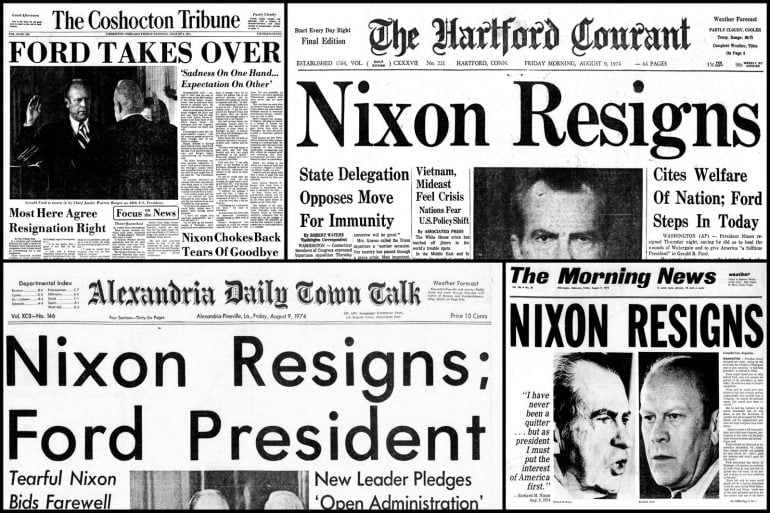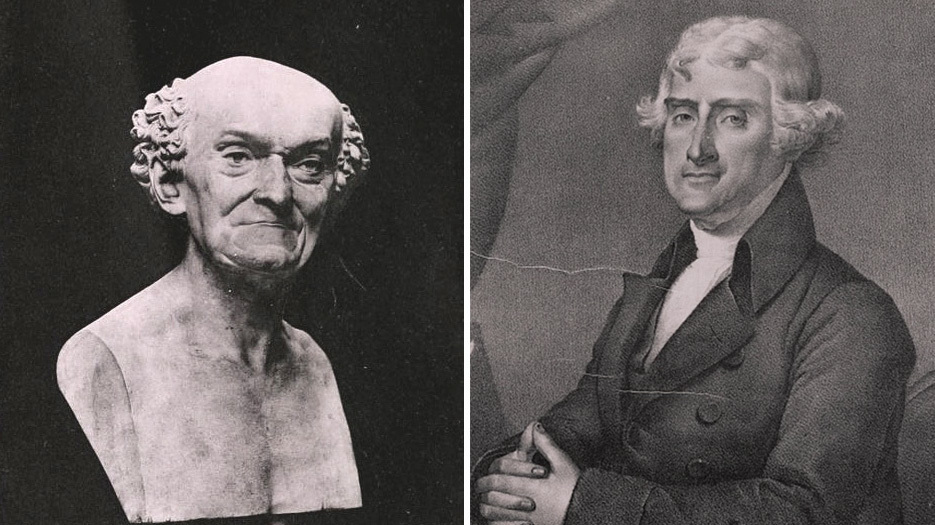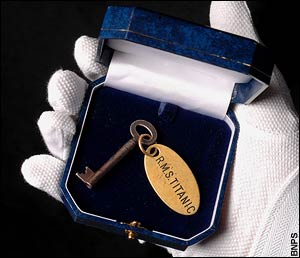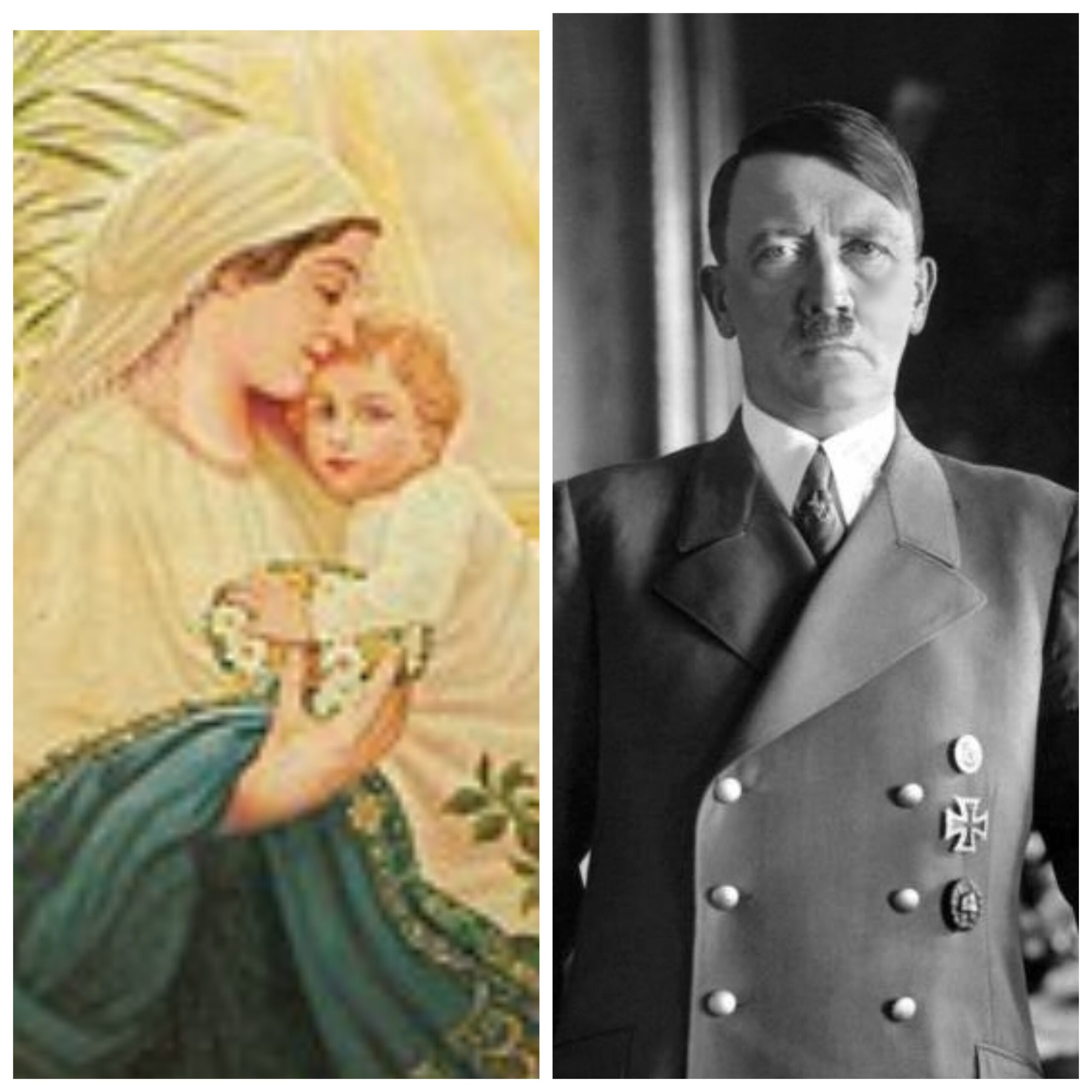Top Lists
Little Things That Changed The Course Of History
According to the idea of the “butterfly effect,” even the smallest things can have non-linear impacts on a complex system. The term itself came courtesy of MIT meteorology professor Edward Lorenz.

According to the idea of the “butterfly effect,” even the smallest things can have non-linear impacts on a complex system. The term itself came courtesy of MIT meteorology professor Edward Lorenz.
He used a computer program to simulate weather patterns with a dozen variables over long periods. Lorenz noticed that just rounding off one variable from .506127 to .506 was enough to drastically alter the entire pattern, and he equated it to the flapping of a butterfly’s wings influencing a tornado weeks later.
Here’s a list of the little things that changed the course of history, some mistakes that later became responsible for large-scale destructive and constructive events.
1. The Piece Of Paper That Changed The Civil War

September 1862 started grim for the Union Army during the US Civil War. Following the Confederacy’s stunning victory at the Second Battle of Bull Run, General Lee began his first invasion of the North in the Maryland Campaign. The French and British governments were preparing to recognize the independence of the Southern states. One significant victory across the Potomac and then a generous offer of peace was all that was needed for the Confederacy to accomplish its political goals.
Lee split up his army into several parts and identified multiple targets. He drew up marching orders known as Special Order 191. He sent a copy to each of his key commanders. Some burned their copies. Others kept them on their person. General James Longstreet chewed his copy with tobacco.
There was a bit of confusion with the orders for General Daniel Harvey Hill. Due to the recent unit division, Stonewall Jackson wasn’t sure if Hill still served under his command or reported directly to Lee. Therefore, he wrote another copy of Special Order 191 and sent it to him. Unbeknownst to him, so did General Lee.
On September 13, the Union army, led by George McClellan, set up camp on the outskirts of Frederick in an area previously occupied by Hill’s men. While resting, two soldiers found three cigars wrapped in a piece of paper. That paper was Special Order 191.
According to Hill, he only received the copy from Jackson. We’ll never know who exactly was responsible for the misplacement, but this priceless information helped the Union Army push the Confederates back south. Lee blamed the defeat of the Maryland Campaign unequivocally on the lost order. A few months later, the victory gave Lincoln the support necessary to announce the Emancipation Proclamation.
2. The Piece Of Tape That Ended A Presidency

To this day, Watergate remains one of the biggest political scandals in US history. The revelation that Nixon’s administration was involved in a conspiracy to spy on political opponents and other officials led to the president’s resignation and the indictment of 69 people. And the whole thing started with a piece of duct tape.
On the night of June 17, 1972, 24-year-old security guard Frank Wills was doing his rounds at the Watergate Office Building. During his first round, he noticed a piece of duct tape on a basement door, placed over the bolt to prevent it from latching shut. Initially, he thought a worker used it during the day to get in and out more easily and forgot the duct tape there. Wills removed it and moved on. However, after another inspection half an hour later, he saw a new piece of duct tape in the same spot. This time, he called the police. Authorities went from room to room and found five burglars in the headquarters of the Democratic National Committee.
An investigation eventually connected Nixon to the conspiracy and led to his resignation. As for Frank Wills, he quit soon after for not getting a raise. He didn’t make much money from his involvement in Watergate, but he did get to play himself in the 1976 classic All the President’s Men.
3. The Pirates Who Stopped The Metric System

French scientist Joseph Dombey (shown in a bust at left) was dispatched to the U.S. in the mid-1790s to share the early metric system, at the request of Secretary of State Thomas Jefferson.
Joseph Dombey was a French botanist who, in 1794, was on his way to Philadelphia to meet with the first US Secretary of State, Thomas Jefferson. At the behest of the French government, Dombey was carrying with him rare cargo—a set of measurement standards called a meter and a kilogram (back then still known as a grave). Jefferson was keen to persuade Americans to adopt the French measurements, which later formed the basis for the metric system. So were many people in Congress eager to get rid of the British measurements. Having the standards presented by a respected scientist such as Dombey should have made it an easy task.
Unfortunately, Dombey never made it to Philadelphia, as his ship was captured by pirates. He tried to disguise himself as a Spanish sailor, but his accent and his poor understanding of the language gave him away. The pirates took him to Montserrat to ransom him to the French government. However, Dombey died in captivity. It would be another century before the US government adopted the metric system under the Mendenhall Order of 1893. Even today, however, most Americans are more familiar with the British Imperial units of measurement.
4. The Clouds That Saved Kokura And Doomed Nagasaki

On the morning of August 9, 1945, a B-29 bomber named Bockscar took off from the North Field on the island of Tinian carrying one of the deadliest payloads in history—the Fat Man nuclear bomb. As most people know, the bomb was dropped on Nagasaki, but that wasn’t the original intended target.
The United States identified several potential bombing targets. One of them was Kyoto, which was spared at the insistence of Secretary of War Henry Stimson, who honeymooned there. Another one was Kokura, a city which housed a giant munitions factory. On its way to its destination, Bockscar was supposed to rendezvous with two other planes—the Great Artiste and the Big Stink. The latter never showed up, and the others left after a 50-minute delay. By that time, visibility above Kokura had worsened due to clouds.
Some official versions say the weather turned bad, while others claimed it was smoke from the firebombing of nearby Yawata the day prior. A third version says visibility was obscured by steam purposely created as a countermeasure against the bombers. Whatever their origin, those clouds prevented the crew aboard the Bockscar from visually confirming their targets as instructed. Running low on fuel, they headed for their alternative target, which was Nagasaki.
5. The Train Ride That Founded Molecular Medicine

Linus Pauling is widely considered one of the great scientists of the 20th century and has two Nobel Prizes to his name. He is typically seen as one of the founders of molecular biology and was particularly interested in studying the structure of proteins. In 1949, Pauling, along with fellow biologists Harvey Itano, S.J. Singer, and Ibert Wells, published a paper called “Sickle Cell Anemia, a Molecular Disease,” which provided the first proof for human diseases caused by abnormal proteins. It was later deemed as the foundation for the field of molecular medicine, and it has its roots in a chance encounter during a train ride.
Back in 1940, a medical student at Johns Hopkins University named Irving Sherman observed that light passing through the red blood cells of sickle-cell patients was transmitted differently than through regular cells. He published his findings, but nothing became of it. However, they did reach Harvard Professor of Medicine, William Castle. Years later, the professor found himself sharing a train with Pauling and began chatting about biology. Castle told the distinguished chemist about Sherman’s observations.
By that point, Pauling had already studied proteins extensively, and he immediately suspected haemoglobin as the culprit. He used a protein-separating process called electrophoresis to analyze samples from people with sickle-cell disease, people without it, and people who carried the sickle-cell trait. He discovered that the first two groups had different types of haemoglobin, while the third had both types. This formed the basis for his aforementioned seminal paper.
6. The Missing Key That Could Have Saved The Titanic

The crew of Titanic wasn’t using binoculars that could help them to spot the iceberg and get out of the way, soon enough to avoid the disaster.
Apparently, David Blair was given the job of second officer on the ship, but he was replaced, and when he left, he accidentally kept the keys to his locker with him, which was believed to contain binoculars intended to be used by the crew’s nest lookout.
As you might have guessed by now, that key is extremely valuable in today’s time, because the key could have saved Titanic from sinking and hundreds of people from dying. The key was auctioned and a Chinese man bought it for £90,000.
7. Osama Bin Laden Was Almost Dead Before 9/11

Bill Clinton, former president of the U.S.A once had the option to kill Osama Bin Laden in 1998. But he decided not to kill him, to save 300 innocent civilians, that would also have died during the attack.
About 3 years later Osama bin Ladin plotted 9/11 and killed about 2,996 people, injured more than 6,000 others, and caused at least $10 billion worth of property and infrastructure damage.
However, we can’t blame Bill Clinton for it because he made a perfect decision at his time, saving 300 innocent people instead of killing one jihadist must have felt more fair. Osama Bin Ladin died in 2011.
8. Largest Wildfire In California History Was A Mistake of Lost Man

In 2003, the largest wildfire in the history of California known as the Cedar Fire burned down a large area of land in San Diego County, it has estimated to have burned 3,200-kilometre square, caused $27 million worth of property damage and killed about 15 people.
The fire was caused by a hunter named Sergio Martinez, who got lost while hunting. He lit the fire to signal rescuers but unusual environmental conditions boosted the fire to a large-scale disaster.
9. The Blackout That Led To The Rise Of Hip-Hop

New York blackouts always seem to come with good stories. There is a popular myth that the 1965 Northeast blackout, which affected 30 million people, led to a massive spike in birth rates nine months later. And many credit the 1977 Blackout for helping popularize the new movement of hip-hop.
On July 13, 1977, most of New York City and its surroundings were impacted by a blackout. This was at a time when the city was affected by a fiscal crisis, experiencing a severe heat wave, and under the threat of David Berkowitz, aka the Son of Sam. Tensions were running high, and 31 neighbourhoods fell victim to looting and vandalism. Among the looters were many up-and-coming DJs and b-boys who saw the blackout as a golden opportunity to “acquire” new sound equipment.
By that time, hip-hop had been around for a few years. DJ Kool Herc is typically credited with its invention at a block party in 1973. By 1977, he even had some competitions, like Grandmaster Flash and Afrika Bambaataa. But it was still a small community. However, the next day after the blackout, “there were a thousand new DJs.” That’s according to hip-hop pioneer Grandmaster Caz, who admitted to stealing a mixer that night. The same sentiment was echoed by Grandmaster Flash, hip-hop journalist Nelson George, and music scholar Joe Schloss. More recently, the subject was covered in the Netflix musical drama The Get Down.
10. The Typo That Brought Down A Government

At first glance, a typo doesn’t seem like a big deal. It’s a mistake that can happen to anyone, and most people should be able to discern the intended meaning from context. However, historically, there have been numerous examples of typos that came with a heavy cost. In 1999, typos managed to bring down the Kuwaiti parliament.
The initial plan was to print a state version of the Quran which would be available for free to all citizens. However, whoever was in charge of publishing didn’t do a very good job because the holy books contained several misprinted verses, while others were missing altogether. Pretty soon, this caused a row, with most of the anger directed at the minister for Islamic affairs, Ahmad al-Kulaib. He faced a vote of no confidence, which he lost. However, this wasn’t enough to make the controversy go away, and the emir of Kuwait, facing growing pressure, had to dissolve the National Assembly.
11. Hitler Was About To Be A Painter

Adolf Hitler the leader of the Nazi party, lone man responsible for World War II (the deadliest war in human history), the Holocaust at an unbelievably massive scale and also for many other destructions the world war caused. It’s hard to believe, but Hitler wanted to be a painter at a young age.
He applied to an Academy of fine arts in Vienna for drawing classes, when he was 18 years old but got rejected, but he didn’t give up and applied again one year later. Again he got rejected and didn’t become an artist. What he became eventually is an ugly history.
12. Penicillin was discovered by an accident

Penicillin antibiotics were among the first and most important antibiotics to effectively work against bacterial infections. However, the story of its discovery is also quite fascinating. A Scottish scientist named Alexander Fleming was experimenting with staphylococcus, but he went on a vacation that lasted for two weeks. Interestingly he left staphylococcus in a Petri dish. When he returned, he witnessed one of the most astonishing events in the history of medicine.
He saw that staphylococcus was contaminated with blue-green mould from an open window, more importantly, bacteria were unable to grow anywhere near the mould.
13. Napoleon Almost Wasn’t French

Napoleon was a French military and political leader, who rose to prominence during the French Revolution and led several successful campaigns. Due to his remarkable achievements, courageous personality and invincible influence on the world, he remains to be one of the most celebrated and controversial figures in human history.
But all of it wouldn’t have happened if he wasn’t French, and according to historians he almost wasn’t. The island he belonged to, only became French island 3 months before Napoleon’s birth.
14. A meteor Is Responsible For The Spread Of Christianity

A Roman emperor named Constantine who ruled from 306 to 337 AD, was a significant figure in the history of Christianity, as he was the first person to claim conversion to Christianity in the Roman Empire. He also played an influential role in enabling tolerance of Christianity in that empire, which is one of the most important factors in the spread of that religion.
However, he became Christian after observing a cross in the sky made out of light, while he was in a battle.
He claimed to have seen a message of God guiding him in the battle. But today’s geologists believe that he might saw a meteor, which created an illusion of a cross, and probably his wishful thinking convinced him that it was a message from God.
15. The Software Update That Brought Down A Banking Giant

Software updates have become an annoying but necessary occurrence in our modern lives. However, all we know to do is accept the “Terms & Conditions” and press “Next” a few times. Anything more than that, and we’re stumped. Typically, failing to update a piece of software doesn’t come with grave consequences, but it once managed to shut down one of the largest banking groups in the world.
June 19, 2012, was supposed to be a typical day for the Royal Bank of Scotland Group (RBS Group). Its technical staff had to apply a regular patch to the CA-7 software, which controlled the bank’s payment processing system. As some outlets reported, this task was left to an “inexperienced operative.” They tried to patch the software and encountered an error. No big deal, just back out of the update and try again. However, when he backed out, the staff member accidentally cleared the system’s whole queue. This created a huge backlog of information that needed to be re-inputted and reprocessed.
For six days, millions of people were unable to withdraw money from their accounts or make online transactions. Some missed mortgage or bill payments, while others were left stranded abroad with no money. In a dire case, a seven-year-old girl was in danger of being taken off life support because her family couldn’t pay for her treatment.
More Articles on RNN
- Top 10 Evil People in The Whole of History
- 10 Worst Nuclear Disasters in US History
- Top 10 Notorious Female Pirates In History
- Shortest Wars in History That Had A Devastating Human Cost
